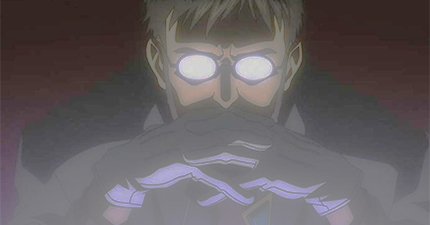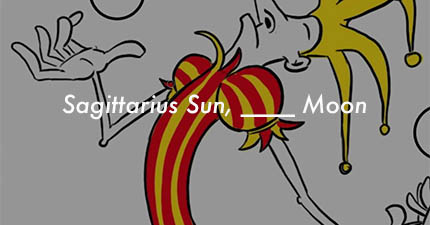Astrology isn’t just about techniques or glyphs. In order to work on astrology and to develop it as a praxis, you must know astrology for sure but you must also have knowledge beyond astrology. Astrology, like the sky, does not exist in isolation but always in relationship to other things. As Brady from Mythic Landscape says:
There’s more to being a good astrologer than just knowing astrology
— dr bernadette brady fan club (@mythiclandscape) December 14, 2020
Here are ten non-astrology books that I think that every astrologer should read:
Stars and the Blackness Between Them by Junauda Petrus
The reason why astrologers should read this book is because it shows the ways in which astrology becomes a love language both in the relationships that are close to us and the relationships that are far to us. This book is about two young people, Mabel and Audre, who are in love. Mabel starts a correspondence with an incarcerated man named Afua Mahmoud. Where does astrology enter into the story? Petrus uses astrology to organize her timekeeping of the narrative, making things nostalgic even as they happen in the present tense. Afua is obsessed with astrology the way we are when we are deeply curious about the world. This book is a YA novel that will show you the richness and depth of astrology more than any textbook or handbook.
The Language of the Night by Ursula le Guin
This book is about science fiction but it is really about the ways in which metaphor can shape the real. Some great lines from it: “Science fiction is not predictive; it is descriptive. Predictions are uttered by prophets (free of charge); by clairvoyants (who usually charge a fee, and are therefore more honored in their day than prophets); and by futurologists (salaried). Predictions is the business of prophets, clairvoyants, and futurologists. It is not the business of novelists. A novelist’s business is lying,” and “All fiction is metaphor. Science fiction is metaphor. What sets it apart from older forms of fiction seems to be its use of new metaphors, drawn from certain great dominants of our contemporary life—science, all the sciences, and technology, and the relativistic and the historical outlook, among them. Space travel is one of these metaphors; so is an alternative society, an alternative biology; the future is another. The future, in fiction, is a metaphor.”
Astrology is metaphor and, as astrologers, exploring the framework of metaphor is a necessity.
Symbols That Stand for Themselves by Roy Wagner
This is another book that explores metaphor but Wagner is one of those philosophers who tries to construct his own scientific framework. He’s also an anthropologist and has all the baggage of anthropology. However, I found the section of this book about real and unreal time helpful. In that section, Wagner distinguishes between what he calls “organic” and “mythic” time.
Wagner treats the symbol as a mathematical entity, autonomous from culture, and his thought experiments are all plays on perception. His way of calculating the perception of realities is not new but is exactly the sort of methodology that astrologers use when calculating moments of time via the chart. I recommend this book to any astrologer who wants to sharpen their methodology to their treatment of symbols.
Metafiction by Patricia Waugh
This book is often recommended and passed around among fanfiction authors who take their work seriously, which not all fanfiction writers do or need to do. Waugh’s book is an attack of originality. She defines metafiction as the following: “fictional writing which self-consciously and systematically draws attention to its status as an artefact in order to pose questions about the relationship between fiction and reality.” This volume is so important for astrologers because, when we interpret charts, we must keep in mind that we are also reinterpreting astrology. All interpretations of charts (narrative and time) are self conscious interpretations. Waugh goes on, in her book, to talk about how meaning is constructed when that very construction is self conscious or postured to look like a fabrication. This book is essential for any astrologer who seeks not to describe the future but to recreate the future.
The Sublime Object of Ideology by Slavok Zizek
This is Zizek’s first book and I would recommend it to anyone who wants to get into his work. You don’t have to read Zizek. You can get the same ideas that he gets into from other writers and philosophers who are not famous and powerful white men. I like reading Zizek because we are both Aries who make bad jokes instead of profound statements. I find him easy to read, so I read him.
Zizek’s entire body of work, and his entire career is basically him writing the same book over and over again under different titles and reworded, is about how ideology is not internal but external. We live in ideology because ideology is materially distributed. He uses Hegel and Lacan to make his points but you also don’t have to read Hegel or Lacan to get into the same ideas. This book is useful for astrologers because we take for granted what skeptics find hard to believe, which is that reality is constructed through ideology.
Unsettling the Coloniality of Being/Power/Truth/Freedom: Towards the Human, After Man, Its Overrepresentation—An Argument by Sylvia Wynter
Okay, this is an essay and not a book. But it’s packed more densely than most books and you should spend as much time on it as you would normally spend on a full length volume. When Wynter writes about Roman ideologies, she does not believe in the myth of classical rationality or humanism. She writes about Roman astronomy as astrology and she takes it apart brutally. She writes that “Greek astronomy was to remain an ethno-astronomy. One, that is, in which the moral/political laws of the Greek polis had been projected upon the physical cosmos, enabling them to serve as “objective truth”.”
I love this essay. It’s one of the essays that have influenced my practice the most. If you choose to read anything from this list, please choose this one. There’s also a PDF version online and you don’t have to buy anything to read it.
Do Metaphors Dream of Literal Sleep? A Science-Fictional Theory of Representation by Seo-Young J. Chu
Yes, another book about metaphor. Metaphor is at the heart of astrology and to be a good astrologer, you will need to learn through metaphor. Chu’s book is really about the nostalgia of the future. One of the most important takeaways that I got from her book is about what it can mean to literalize a metaphor. Literalizing a metaphor means that you return a metaphor back to its material basis—back to the producers of that metaphor. You use fictional robots to talk about the labor involved in the making of machines. You use robots as a metaphor to talk about third world labor. The tool of literalizing metaphors back to their material basis is a tool that every astrologer should carry in their work. You can only shape the material when you treat it as fiction.
Racecraft: The Soul of Inequality in American Life by Karen E. Fields and Barbara J. Fields
Every astrologer should have an understanding of metaphor and race is also a metaphor. No one should pretend to understand metaphor without having an understanding of race. Race is how metaphors are distributed within white supremacist society. In this book, Fields and Fields explore race not as a rational or scientific phenomenon but as a magical one. Metaphors, after all, are not scientific but magical and race as a metaphor is powerful precisely because it is illusory and fictional. Fields and Fields talk about the social power of magical systems, of which race is a part.
This book is a powerful one. It leaves us with the feeling that our languages are convoluted because they are inadequate. This is a feeling that every astrologer is familiar with.
The Three Body Problem trilogy by Cixin Liu
The reason why I like Chinese science fiction, even though it is often patriarchal, is because it is never heavy handed. It is not possible for Chinese authors to be heavy handed since it is not permissible to be an ideological writer when you are a Chinese writer. Chinese science fiction also does not center individual experience. It impresses you with the breadth of sociopolitical phenomenon. This trilogy does just that. It is about the absurdity of existing, the absurdity of misanthropy, and of perception and scale.
The reason why I think astrologers should read this trilogy is because it takes the universe, with all of its absurd laws of being and perceiving, and uses it as a metaphor. It’s also a very good story.
The Fifth Season trilogy by NK Jemison
This trilogy is about season as metaphor. It tries to imagine what our ecologies and cosmos would look like with crucial elements altered.
This is a good trilogy. It’s about institutional violence, incarceration, hiding in plain sight, adaptation, and survival strategies. It’s about grief. It’s about the tricky boundaries between the human and the inhuman. The reason why every astrologer should read this book is because it is a mediation on the intersections between power and world. I can’t talk about what elements I found to be relevant astrologically without spoiling parts of the story so just take my word for it. You won’t regret picking it up. You won’t be able to put it down.
Walking the Clouds: An Anthology of Indigenous Science Fiction edited by Grace L Dillon
There is so much in this anthology. The one story that I wanted to pull out and talk about in this book is Diane Glacy’s “Aunt Parnetta’s Electric Blisters.” In the introduction to the story, Dillon writes that “Diane Glancy bases her sense of time on ideas she gleaned when auditing a physics course: time as rubber band, stretchable, or as little loops.” Before this story Dillon talks about how slipstream time is “showing us a world where time and space are distorted, where shamanistic possession leads to surreal vision,” and “a survivance story that that tribal people tell.” She writes that slipstream time is “more other than other” and work beyond the usual science fiction tropes.
This book is crucial. It is not only that metaphors are magical but also that time itself is also a metaphor. Astrologers work with time as metaphor. We treat timekeeping as a magic.
Hyperspace by Michiro Kaku
I really like Michiro Kaku! He breaks down quantum and advanced physics in a way that anyone can understand. He turns physics from an exercise in rationality into an exercise of speculation and imagination. I always hated physics when I was a kid. I didn’t have a great physics teacher. Kaku’s work made me fall in love with the subject because it introduced to me thought experiments that pushed me to think of reality as something that escapes realism. I learned that physics is not about particles but about perception. Every astrologer should look into the world of quantum physics. It is as magical and speculative a world as that of astrology.


